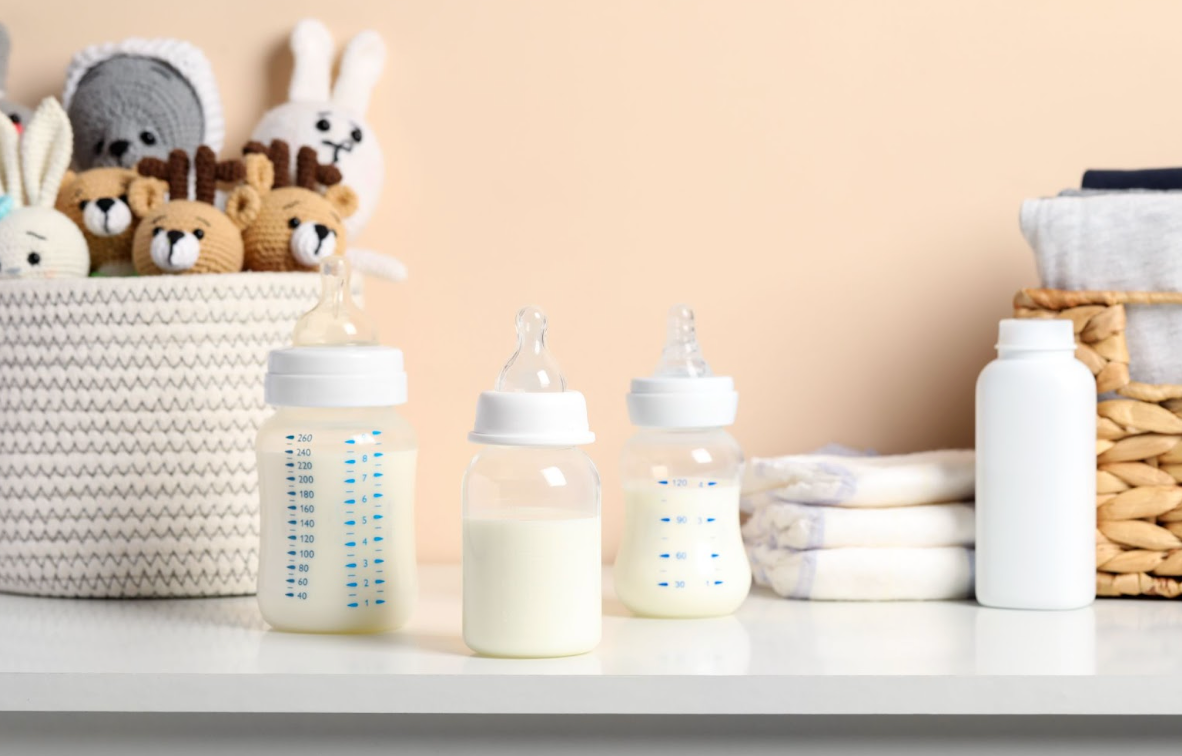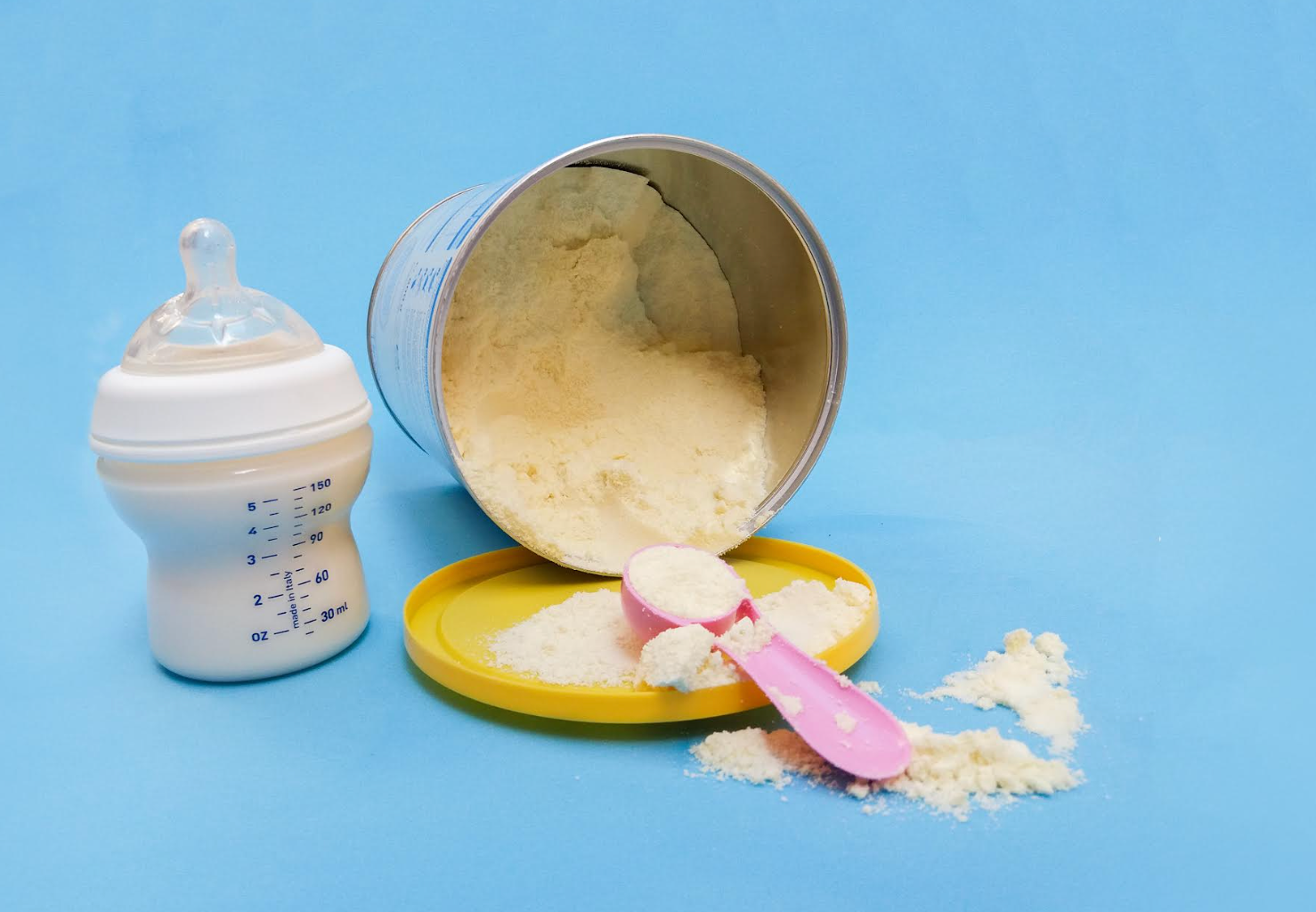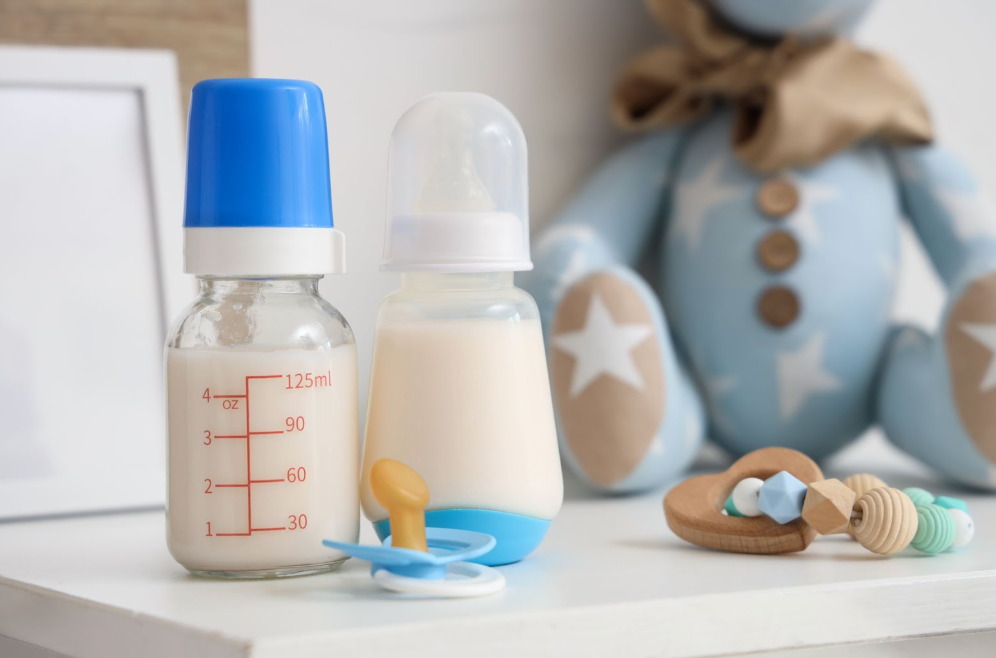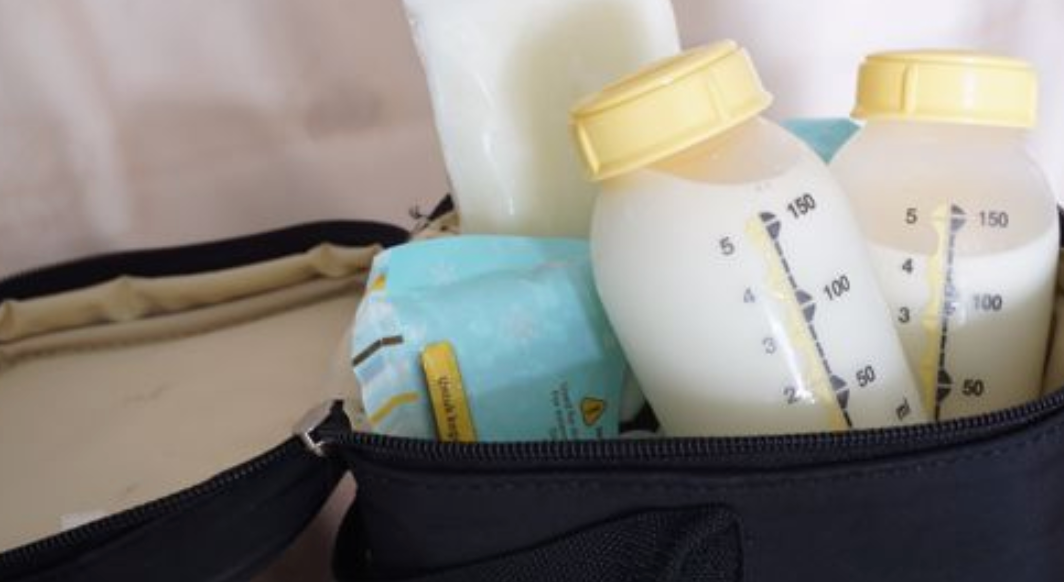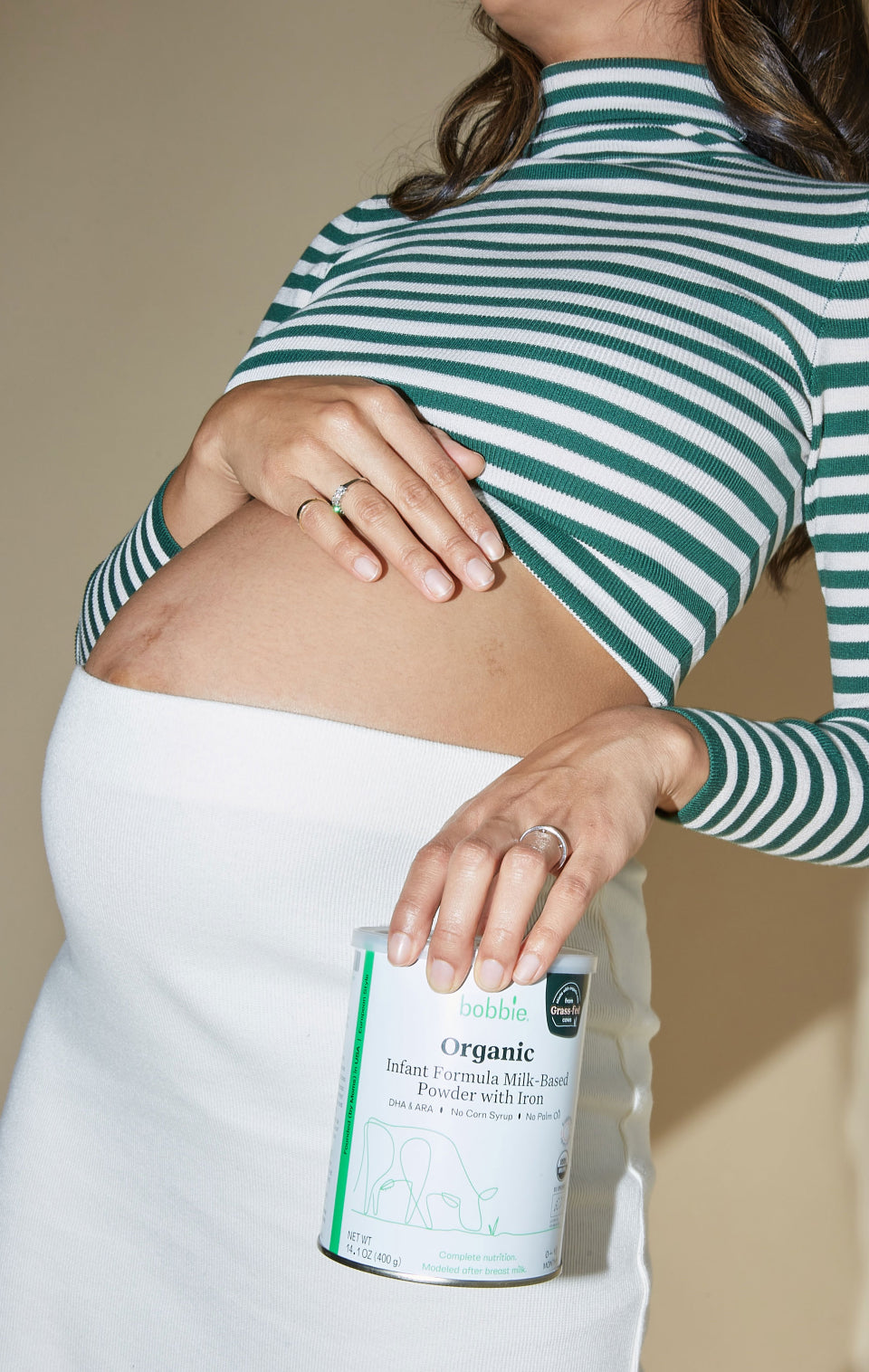Published May 29, 2025

Why Is My Baby Fussy After Eating?
Is your baby fussy after eating? Post-feeding fussiness can be confusing and even a little overwhelming, but you’re not alone. While it’s hard to see your little one squirm or cry, it’s often perfectly normal. And the good news is, there are plenty of ways to soothe and support them!
We're taking a closer look at what’s typical when it comes to baby fussiness, when it might be time to check in with your pediatrician and how to help ease those tricky post-meal moments.
Is Fussiness After Feeding Normal — and When Should I Worry?
Fussiness after eating can be normal for babies, but any signs that deviate from regular behavior may indicate something more. Here’s what to expect from typical baby behavior:
-
Brief crying or grunting after feeds is common and usually nothing to worry about.
-
Mild gas or hiccups can happen as babies adjust to feeding by mouth.
-
Wanting to be held or burped is a normal comfort cue.
-
Settling with gentle soothing shows it’s likely typical fussiness.
When might baby fussiness be worth a closer look?
-
Crying that doesn’t let up: Escalating or excessive crying after feeds could signal discomfort beyond typical fussiness.
-
Tense body language: Arching the back, clenching fists or stiffening legs may point to pain or reflux.
-
Feeding struggles: Spitting up large amounts or refusing to eat can indicate digestive issues or sensitivities.
-
Growth or diaper changes: Poor weight gain or noticeably fewer wet diapers could be signs of feeding problems.
-
Overtired and uncomfortable: Signs of pain, irritability or extreme exhaustion that don’t resolve with soothing may need a pediatrician’s input.
Bobbie Organic Gentle Infant Formula is the only baby formula in the U.S. market that offers 100% partially-hydrolyzed whey protein and 100% organic lactose as the carbohydrate source. Our gentle baby formula is easy on sensitive tummies to help alleviate fussiness from gas. Shop Bobbie Gentle today!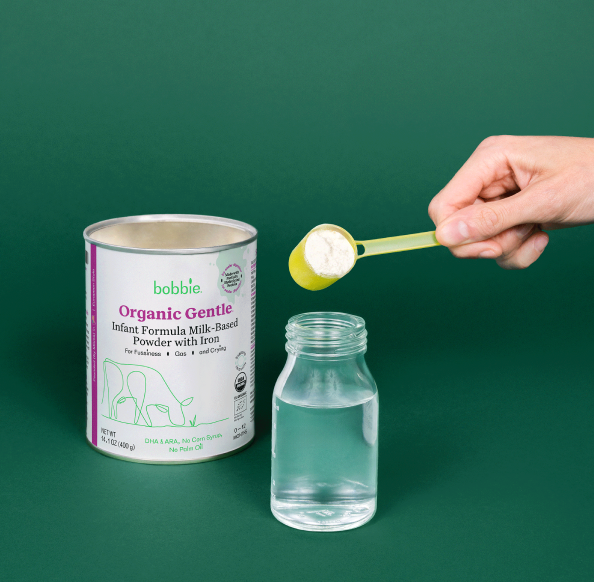
Shop Bobbie Gentle Organic Infant Formula
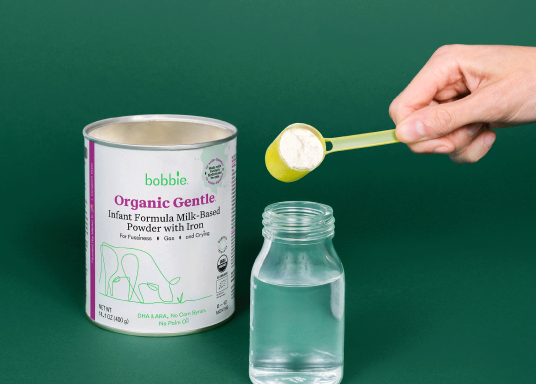
6 Common Reasons Babies Are Fussy After Eating
The most common culprits behind post-feeding fussiness include:
1. Gas and Trapped Air
Babies often swallow air when feeding, especially if they’re eating too fast or bottle-fed without breaks. Since their little digestive systems are still growing, trapped air can cause uncomfortable bubbles, leading to bloating and sharp tummy cramps. It’s no wonder they get a little fussy!
Helpful tips:
-
Burp your baby during and after feeds to help release that trapped air.
-
Try feeding your baby upright to cut down on swallowed air.
-
Ensure you’re using the correct nipple flow size that provides a slow-flow rate.
-
Gentle bicycle leg exercises can work wonders for easing tummy tension.
2. Overfeeding and Fast Feeding
Babies have tiny tummies that can only hold so much milk at once. Overfeeding or gulping down milk too fast often means discomfort, spit-up, or even refusal to keep eating.
Helpful tips:
-
Use paced bottle feeding, offering smaller amounts more often.
-
Let your baby set the pace instead of rushing the feed.
3. Gastroesophageal Reflux (GER/GERD)
Spitting up is pretty common, but painful reflux can make infants cry during feeds, arch their backs or produce wet burps. It’s especially common in preemies or little ones with low muscle tone.
Helpful tips:
-
Keep your baby upright after feeding to ease reflux.
-
If fussiness sticks around or gets worse, don’t hesitate to check in with your pediatrician.
4. Food Sensitivities or Allergies
Sometimes, fussiness comes from food sensitivities, like protein intolerance. While breastfed babies might react to what parents eat, formula-fed babies might be sensitive to certain formula ingredients. Watch for irregular stools, excessive reflux or skin irritations.
Helpful tips:
-
Pay attention to how your baby reacts to changes in formula or diet.
-
Chat with your pediatrician or a specialist if you suspect allergies.
5. Colic and Crying Cycles
Colic is excessive crying that lasts more than three hours a day, three days a week, for several weeks. It’s surprisingly common — affecting about one in five babies, whether breastfed or formula-fed, according to the National Health Service. You might notice a colicky baby clenching their fists, turning red or pulling their knees up, usually in the late afternoon or evening. This tends to start around 3–6 weeks old, but usually eases up by 3–4 months.
Helpful tips:
-
Focus on soothing with rocking, white noise or gentle cuddles.
-
Remember, colic tends to improve with time — even if it feels tough now.
6. Teething and Oral Discomfort
Teething can start as early as three months, making sucking uncomfortable. Babies might chew on nipples, pull off during feeds, drool a lot or have swollen gums.
Helpful hints:
-
Offer teething toys or a cool washcloth to soothe sore gums.
-
Try gently massaging your baby’s gums to ease the discomfort.


Your go-to resource for all things new baby.
Sign up to get the scoop on feeding, sleep, poop, and so much more.
By singing up for email, you are to receive marketing emails from Bobbie and can manage your email preferences or unsubscribe at anytime
How To Calm a Fussy Baby After Eating
Tried-and-True Ways to Soothe Your Little One
When your little one is uncomfortable after formula feeding or breastfeeding, try these soothing strategies:
-
The 5 S’ (i.e., swaddle, side/stomach hold, shush, swing and suck) is a calming combo popularized by Dr. Harvey Karp.
-
Skin-to-skin contact helps regulate your baby’s breathing, heartbeat and emotions.
-
Gentle motions like rocking, bouncing or taking a slow walk with your little one can work wonders.
-
Pacifiers support the sucking reflex, which is naturally soothing.
-
Sound therapy, like white noise or heartbeat sounds, mimics the womb for comfort.
-
Warm baths or a baby massage can relax tense muscles and ease tummy discomfort.
Burping Basics That Can Make a Big Difference
Burping might be able to help your fussy baby, especially if they tend to swallow air while feeding. Try pausing halfway through and again at the end of each feeding to help release any trapped bubbles. You can burp your baby:
-
Over your shoulder
-
Sitting upright on your lap
-
Lying across your knees
Use gentle circular rubs or soft pats on their back, and keep them upright for a bit after feeding to help ease gas and discomfort.
Feeding Positions To Ease Discomfort
Not sure how to position your baby during and after feeding?
-
Hold your baby upright for 20–30 minutes after eating to help prevent gas and reflux.
-
Side or tummy holds can be soothing — just be sure your baby is always placed on their back for sleep.
-
Babywearing keeps your little one close while promoting gentle movement that supports digestion.
-
Switch sides or angles during bottle feeds to support even digestion and help prevent preference or buildup of gas on one side.
Every baby is different, so don’t stress if one method doesn’t work right away. Stay patient and experiment with positions until you find one that works for you both.
When Formula Could Be the Cause — and How Bobbie Organic Gentle Helps
Here are a few signs your formula might be the cause behind your little one’s fussy fits:
-
Crying during or right after bottle feeds
-
Gassy or tight belly
-
Frequent spit-up or arching the back in discomfort
-
Stool changes
-
Signs of skin irritation
-
Pulling away from the bottle but still acting hungry
If you're seeing more than one of these signs consistently, it may be time to talk with your pediatrician about switching formulas.
Why Bobbie Organic Gentle® Infant Formula Stands Out
Bobbie Organic Gentle® is made for sensitive tummies — with 100% lactose and partially hydrolyzed whey protein for easier digestion. It skips the ingredients you don’t want (no corn syrup, palm oil, maltodextrin or soy) and delivers what you do: organic, non-GMO nutrition that meets USDA and most EU standards.
Pediatrician-recommended and Clean Label Project Certified, it’s a parent favorite for easing fussiness and digestive discomfort. Even better? It’s easy to stock up with a flexible subscription.
When To Call Your Pediatrician — and What To Watch For
Loop in your pediatrician if you notice any of the following signs:
-
Irregular stools or refusing feeds: These could signal a food allergy, infection or digestive issue that needs medical attention — don’t wait to check in.
-
Poor weight gain or low diaper count: Infants should be steadily gaining weight and staying hydrated; low diaper output may point to a feeding or health concern.
-
Fever in newborns: Fever over 100.4°F in babies under 3 months can be serious, even if your baby seems okay. Always call your pediatrician for guidance.
-
Unusual crying or weakness: High-pitched crying, limpness or unusual tiredness can be signs of discomfort or illness that shouldn’t be ignored — especially if they come on quickly.
-
Sudden behavior changes: If your baby is acting out of character or eating drastically less, trust your gut and talk to your doctor.
Hunger vs. Discomfort
Hungry babies usually root, turn their heads or suck on their hands. Discomfort, on the other hand, often shows up as tensing, arching or sudden crying mid-feed. A simple log of feeding behaviors and sleep habits can help you spot patterns. And when in doubt, don’t hesitate to loop in your pediatrician!
Finding Comfort at Feeding Time: A Final Word
Fussiness after feeding is often part of babyhood, but sometimes it points to issues like gas, reflux or formula sensitivity. The good news? Simple steps like holding your baby upright and using gentle soothing techniques can make a big difference. If formula seems to be the culprit—but your baby doesn’t have a diagnosed allergy—try Bobbie Organic Gentle®, a Clean Label Project certified, organic option made for sensitive tummies. No fillers, no nonsense.
Shop Bobbie Organic Gentle® Infant Formula today.
The content on this site is for informational purposes only and not intended to be a substitute for professional medical advice, diagnosis or treatment. Discuss any health or feeding concerns with your infant’s pediatrician. Never disregard professional medical advice or delay it based on the content on this page.












